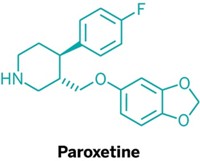Advertisement
Grab your lab coat. Let's get started
Welcome!
Welcome!
Create an account below to get 6 C&EN articles per month, receive newsletters and more - all free.
It seems this is your first time logging in online. Please enter the following information to continue.
As an ACS member you automatically get access to this site. All we need is few more details to create your reading experience.
Not you? Sign in with a different account.
Not you? Sign in with a different account.
ERROR 1
ERROR 1
ERROR 2
ERROR 2
ERROR 2
ERROR 2
ERROR 2
Password and Confirm password must match.
If you have an ACS member number, please enter it here so we can link this account to your membership. (optional)
ERROR 2
ACS values your privacy. By submitting your information, you are gaining access to C&EN and subscribing to our weekly newsletter. We use the information you provide to make your reading experience better, and we will never sell your data to third party members.
Pharmaceuticals
AstraZeneca And Ranbaxy Settle Suit
Nexium agreement still has to get past regulators
by Lisa M. Jarvis
April 21, 2008
| A version of this story appeared in
Volume 86, Issue 16
AstraZeneca and Ranbaxy Laboratories have settled a patent lawsuit over Nexium, AstraZeneca's blockbuster heartburn drug.
Under the agreement, Ranbaxy can start selling a generic version of Nexium in May 2014. In the meantime, the Indian firm will become AstraZeneca's U.S. distributor for generic versions of two of its older drugs. Ranbaxy will also manufacture esomeprazole, the active pharmaceutical ingredient (API) in Nexium, for AstraZeneca starting in 2009. AstraZeneca says the arrangement furthers its previously announced strategy to exit API manufacturing over the next five to 10 years.
The pact has yet to pass muster with regulatory authorities. The Federal Trade Commission (FTC) appears to be growing weary of "authorized generics" deals in which drug companies essentially pay to keep competition off the market.
In 2005, Ranbaxy cut a similar deal with the biotech firm Cephalon. Ranbaxy agreed to drop its patent challenge on Cephalon's flagship drug, Provigil, in exchange for a nonexclusive license to market a generic version of the narcolepsy drug starting in October 2011. That deal also included a manufacturing arrangement under which Ranbaxy was hired to supply the API for Provigil.
Earlier this year, FTC sued Cephalon for "a course of anticompetitive conduct" related to its Provigil agreements with Ranbaxy and three other generic drug firms. The agency charges that Cephalon paid the generics companies more than $200 million to delay competition between generics and the patented drug.
AstraZeneca's deal with Ranbaxy does not include a direct payment. "There is no payment being made for this, and there have been a number of settlements like this done in the past," AstraZeneca CEO David Brennan told reporters during a conference call.
Still, observers say the manufacturing contract and other agreements could be viewed as simply another form of financial incentive for Ranbaxy to back off. YeeWah Chin, an antitrust lawyer with New York City's Ingram Yuzek Gainen Carroll & Bertolotti, says such incentives set red flags waving at FTC.
"The question becomes whether it's a sham," Chin says. FTC, she adds, will weigh whether the manufacturing and distribution deals are priced appropriately and whether AstraZeneca's patents would have held up in court.





Join the conversation
Contact the reporter
Submit a Letter to the Editor for publication
Engage with us on Twitter